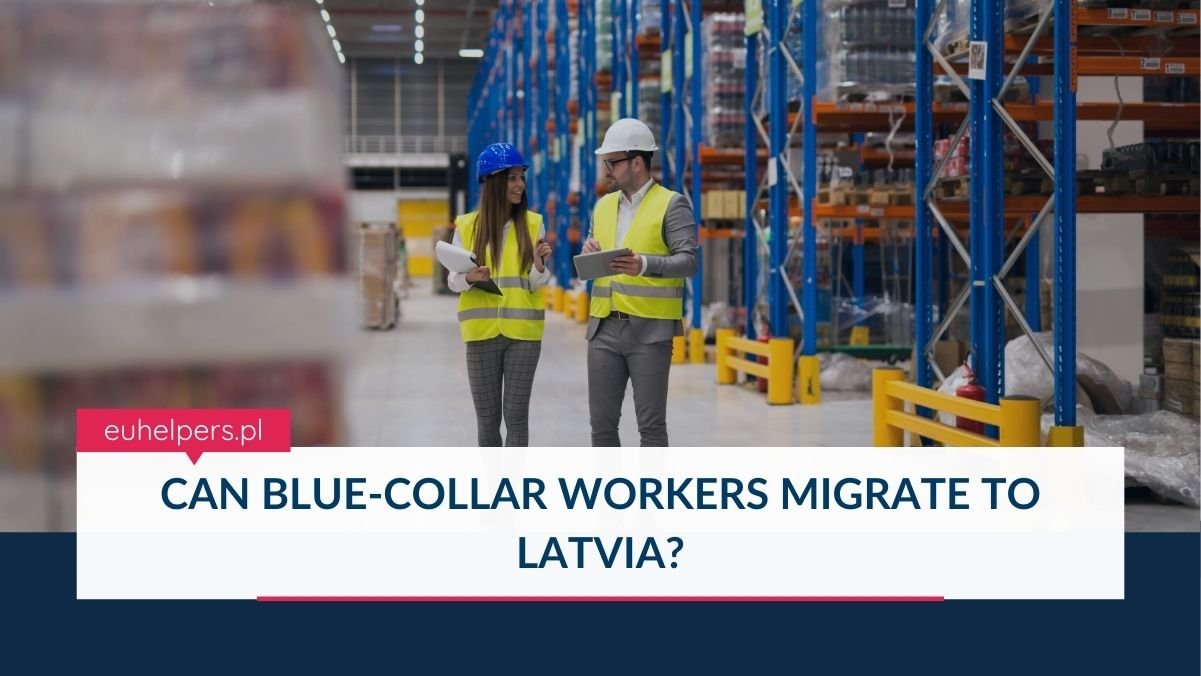
Latvia has become an emerging destination for foreign workers—especially in manufacturing, construction, logistics, and agriculture. Many applicants ask whether blue-collar workers can legally migrate to Latvia for long-term or seasonal employment. Latvia does allow non-EU citizens to work in these sectors, but the process includes employer sponsorship, a verified job offer, and a residence permit for employment.
Can Blue-Collar Workers Work and Migrate to Latvia?
Yes. Blue-collar workers can legally migrate to Latvia, provided they have:
-
A confirmed job offer from a Latvian employer
-
An employer-sponsored work permit
-
A long-stay (D) visa or residence permit for employment
Latvia hires foreign workers in labour shortage sectors where local candidates are insufficient. Most roles are full-time, contract-based, and require basic fitness and job-related skills, though not necessarily advanced qualifications.
In-Demand Blue-Collar Jobs in Latvia
Blue-collar roles commonly available for foreign workers include:
-
Warehouse workers
-
Packaging operators
-
Construction helpers
-
Welders and machine operators
-
Production line workers
-
Drivers and logistics helpers
-
Agricultural labourers
-
Maintenance workers
Employers often provide accommodation or assistance in finding housing.
Eligibility Requirements
To migrate for blue-collar work, applicants typically need:
-
A valid passport
-
Signed employment contract
-
Proof of qualifications or experience (if required)
-
Clean criminal record
-
Medical certificate (in some sectors)
-
Completed work permit application supported by the employer
Language skills are not mandatory for most entry-level jobs.
Visa and Work Permit Process
The migration process for blue-collar workers in Latvia usually follows these steps:
-
Employer submits the work permit request to the Office of Citizenship and Migration Affairs (OCMA).
-
Authorities review the vacancy to confirm no suitable local candidate is available.
-
Employer receives approval and issues a contract letter.
-
The worker applies for a Long-Stay D Visa at the Latvian embassy.
-
Upon arrival, the worker receives the residence permit card for employment.
Processing times vary but usually take several weeks.
Are There Restrictions?
Yes, blue-collar workers must:
-
Work only for the sponsoring employer
-
Renew permits before expiry
-
Inform authorities if changing employers
-
Follow local labour and residence regulations
Working illegally can result in fines, deportation, or future entry bans.
Benefits for Blue-Collar Workers in Latvia
Foreign workers in Latvia usually receive:
-
Legal employment status
-
Employment contract protection
-
Standard working hours and overtime rules
-
Access to health insurance and social benefits
-
Opportunity to apply for long-term residence after several years
Conclusion
Blue-collar workers can legally migrate to Latvia, as the country actively hires foreign labour in shortage sectors. With a valid job offer, employer sponsorship, and proper documentation, workers can apply for a D visa and residence permit to begin employment. Latvia’s stable job market, growing industries, and clear work permit system make it a viable option for those seeking blue-collar opportunities in Europe.
EUHelpers guides workers through each step to ensure a smooth, legal, and transparent process.
